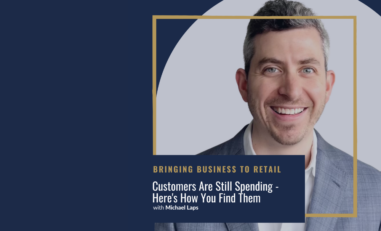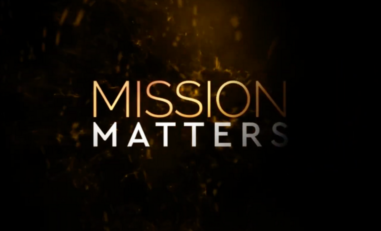
23 April, 2021
Note: I originally wrote this article for Mumbrella, which is where it was first published.

Some of the best experiences you’ve had with businesses are likely because they’ve had the human touch; a personal experience where you felt understood, cared for, or made to feel special.
In a world where automation and AI are becoming dominant discussions in boardrooms, the next frontier is how to take human experiences and translate them into a marketing function with no human touch points.
From what I can see, there are several major roadblocks to all companies having access to these technologies:
- Privacy laws
- A lack of clean customer data
- Prohibitive costs for each technology/platform
- Internal capabilities and resourcing
It’s only a matter of time before these technologies become affordable and accessible for companies of all sizes, and therefore the norm for marketing teams. This opens up an unimaginable amount of possibilities – but at the expense of real people who will lose their jobs rapidly, with little warning, and with very few alternative options.
Outcome #1: Lots and lots of people are going to lose their jobs
Much like factory workers over the last few decades, many of the jobs we’re familiar with today will become obsolete, as artificial intelligence and automation becomes more advanced. The makeup of the workforce will shift and change as new skills become preferred (and required) to manage these technologies.
A study by McKinsey found that about half the activities people are paid to do globally could be automated using existing technologies – that’s a staggering number. Yet less than five percent of activities can be fully automated, because jobs that demand compassion, creativity or social intelligence aren’t able to be fulfilled by AI. They don’t have those functions (yet) and require human input, so will likely continue to be carried out by people for decades to come. That’s why in the future (read: next five years), the ability to think strategically, creatively, and laterally will be worth their weight in gold.
Many others, however, will need to prepare for career changes. The issue here is that companies deploying automation and AI say the technology allows them to create new jobs. But this is misleading, because the number of new jobs created isn’t even close to the number of jobs lost. Within marketing specifically, this creates a potentially counter-intuitive dynamic where the more we adopt technology, the more likely we are to put ourselves out of a job.
Outcome #2: We’re going to lose the human touch
AI undoubtedly helps improve many processes and functions by learning what is/isn’t working rapidly, then making snap decisions at scale to drive performance improvements. Your average human couldn’t handle this same level of analysis and optimisation – you’d need an enormous team, which still wouldn’t be able to keep up.
The expansion of our strategic capabilities and the efficiencies it builds is unquestionable. But what is definitely questionable is the value of human interaction and the loyalty that builds with consumers.
All of those memorable human experiences you’ve had are either no longer possible, or they become so automatic that we no longer appreciate them. They lose meaning because they’re now an expectation. The old adage of “you can’t appreciate the good without the bad” is true here too – we’ll become desensitised to high-end experiences because that’s all we’ll ever receive.
As leaders, managers, marketers, specialists and people, we have a responsibility to recognise and consider the broader impact of the decisions we make for the future of our teams and co-workers.
While everyone is talking about all of the amazing things they’re doing with AI and automation, an active conversation needs to happen in parallel about the collateral damage to the roles quite literally in the firing line. That cost is real, and its impact is far-reaching.
Now is the time for us to consider and plan for these changes, to begin the process of restructuring and training, so we can minimise the human impact of technological advancement if and where possible. And maybe, at the same time, see if we can preserve the importance and power of the human touch in marketing.
Related Posts

‘Bringing Business to Retail’ Podcast
The topic: “Consumers Are Still Spending – Here’s How to Find Them”
27 May, 2023

